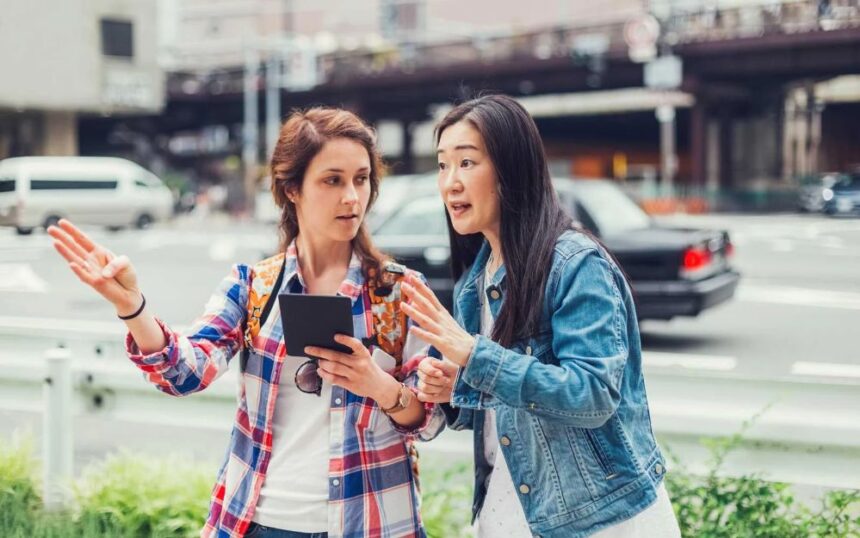Powerful Reasons Why Asking Permission Before Taking Pictures Builds Trust and Respect
In today’s digital age, photography is everywhere. From smartphones to professional cameras, capturing moments has become a daily part of life. But amid this surge of photographic activity, one principle remains crucial: always ask permission before taking pictures. This simple act reflects respect, empathy, and social awareness, and it carries deep significance both historically and in modern human behavior. In this guide, we’ll explore everything you need to know about the importance of seeking consent before photographing someone—covering history, facts, FAQs, timeline, significance, daily life impact, and its broader societal value.
- History of Asking Permission Before Taking Pictures
- Facts About Asking Permission Before Taking Pictures
- Timeline of Photography and Consent Awareness
- Significance of Asking Permission Before Taking Pictures
- Daily Life Impacts of Asking Permission Before Taking Pictures
- Observance and Important Points
- Common FAQs About Asking Permission Before Taking Pictures
- Wishing and Social Significance
- Conclusion: Importance in Daily Life and Society
History of Asking Permission Before Taking Pictures
The concept of consent in photography is relatively modern but rooted in historical practices of privacy and respect. In the early days of photography, cameras were rare and expensive, and taking someone’s portrait without consent was considered a serious breach of etiquette.
19th Century: Early photographers often required explicit consent from subjects, particularly in portrait studios. People valued their likeness and expected compensation or permission.
Early 20th Century: Street photography became more common, but social norms discouraged taking candid photos without the subject’s knowledge, especially of women and children.
Late 20th Century: With the rise of personal cameras, snap-happy tourists and event photographers sometimes bypassed consent, sparking discussions about ethics and personal boundaries.
21st Century: The explosion of smartphones and social media made photography ubiquitous. This increased the importance of consent, privacy laws, and ethical photography practices.
Facts About Asking Permission Before Taking Pictures
Consent is a legal matter in many countries: Some countries have strict privacy laws prohibiting photography without consent, particularly in private spaces.
Cultural sensitivity matters: In certain cultures, taking photos of people—especially women or religious figures—without permission can be deeply offensive.
Children require parental consent: Photos of minors often require explicit parental approval before being shared publicly.
Consent builds trust: Asking before taking a photo signals respect and professionalism.
Ethical photography increases social responsibility: Responsible photographers consider emotional and social impact, not just aesthetics.
Timeline of Photography and Consent Awareness
1830s–1840s: Photography invention; portraits taken mostly in studios with consent.
1850s–1900s: Street photography emerges; social norms restrict unsolicited photos.
1920s–1950s: Photojournalism grows; ethical debates arise around candid shots.
1960s–1980s: Privacy concerns emerge with commercial and paparazzi photography.
1990s–2000s: Digital cameras make photos ubiquitous; discussions about consent increase.
2010s–Present: Smartphones and social media amplify the importance of asking permission; legal frameworks strengthen globally.
Significance of Asking Permission Before Taking Pictures
Asking permission is not just a polite gesture; it carries psychological, ethical, and social significance:
Respect for autonomy: People have a right to control their own image. Seeking permission honors that right.
Cultural and religious sensitivity: Avoids offending traditions or beliefs.
Trust-building: Encourages cooperation, especially in professional photography or journalism.
Reduces social conflict: Prevents awkward encounters or misunderstandings.
Promotes responsible social media behavior: Protects individuals from unwanted online exposure.
Daily Life Impacts of Asking Permission Before Taking Pictures
The practice of seeking consent can influence many areas of life:
Family events: Asking first ensures everyone is comfortable being photographed.
Tourism: Respecting locals’ privacy in photos enhances cultural exchange.
Professional work: In journalism, modeling, and event photography, consent is essential for legal and ethical reasons.
Social gatherings: Prevents potential embarrassment or negative feelings when images are shared online.
Online presence: Asking permission can prevent misuse of personal images and uphold digital ethics.
Observance and Important Points
To practice ethical photography, consider these tips:
Always ask clearly and politely: A simple “May I take your picture?” is effective.
Respect refusal: If someone declines, do not push or sneak a photo.
Understand cultural norms: Research local customs before photographing in public spaces, especially in foreign countries.
Avoid intrusive angles or zooms: Even with consent, respect personal space.
Protect privacy online: Ensure that photos shared on social media do not violate the consent given.
Common FAQs About Asking Permission Before Taking Pictures
Q1: Why is it necessary to ask before taking a picture?
A: Consent respects personal boundaries, cultural norms, and legal rights. It fosters trust and avoids potential conflict.
Q2: What should I do if someone refuses?
A: Always respect their decision. Taking photos without consent can harm relationships, reputation, or even result in legal consequences.
Q3: Does asking permission make photos look less natural?
A: Not necessarily. With clear communication, people often relax, and the resulting photos can be even more authentic and expressive.
Q4: Are there situations where consent is not needed?
A: Public events like protests or sports may allow photography without individual consent in many countries, but cultural sensitivity and ethical judgment are important.
Q5: Can children give consent for pictures?
A: Minors usually require parental or guardian permission. Photographers must be cautious and ethical.
Wishing and Social Significance
Asking permission before taking pictures can also carry positive social and emotional benefits:
Respectful interactions: A polite request can lead to friendly engagement and shared joy.
Acknowledging cultural norms: Shows humility and awareness, which can strengthen social bonds.
Encouraging consent culture: Promotes awareness that consent is important in all areas of life, not just photography.
Conclusion: Importance in Daily Life and Society
Asking permission before taking pictures is more than a courtesy—it is a reflection of human empathy, cultural respect, and ethical responsibility. In modern society, where images circulate instantly on social media, practicing consent is crucial for personal, professional, and social integrity.
When we ask permission, we honor individuals’ autonomy, safeguard their privacy, and create a foundation of trust. This simple action strengthens relationships, prevents conflict, and fosters a respectful environment in families, communities, workplaces, and online spaces.
Whether photographing a family gathering, a tourist site, or a professional event, seeking consent ensures ethical behavior and demonstrates thoughtfulness. By cultivating a habit of asking first, we contribute to a culture where respect, trust, and human dignity are valued—making both our personal and societal interactions richer, safer, and more meaningful.








